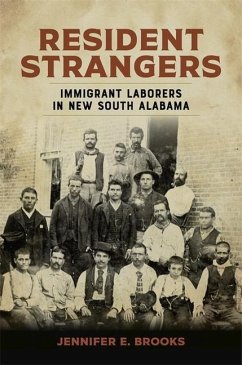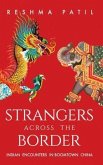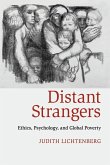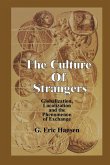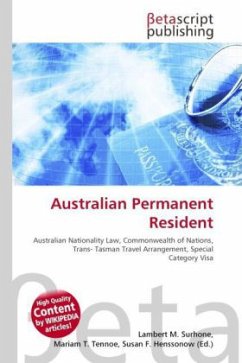"Jennifer Brooks's Resident Strangers recovers the lost history of non-native laborers in the New South, utilizing the state of Alabama from 1865 through 1914 as the primary focus. Several immigrant groups-Chinese, southern, central, northern, and eastern Europeans, British, and Africans-arrived in Alabama during those years, mainly due to various campaigns to recruit workers. Brooks examines each group, analyzing the experiences of Chinese laborers brought in to help build the Alabama-Chattanooga Railroad, African immigrants' involvement in the labor conflicts of the Birmingham industrial district, and the experiences of immigrants who ran afoul of the racialized structures of power, particularly those whom the state imprisoned, leased as convicts, or jailed for violent offenses committed during strikes. Brooks suggests that immigrant laborers recruited to Alabama to replace or discipline Black laborers ultimately played an authentic role in constructing a New South, committing their labor and sometimes their lives, willingly or not, to the New South endeavor. They suffered all the vagaries of New South economic exploitation, injected an instability to the racial categorization that defined the Jim Crow South, and added an ethnic diversity to southern cities, towns, and rural communities. Their stories are not simply adjacent to the New South but intrinsic to its history, connecting the region to the broader development of an American empire. In emphasizing New South participation in the exploitation of the global stream of migratory labor, Brooks adds to the literature of the global South. Her study puts immigrant recruitment campaigns in the context of the transition of plantation societies worldwide from unfree to free labor and brings the New South into the conversation regarding the labor of building the American empire. Immigrant laborers worldwide joined US-born workers to develop the New South's industrial heartland of Birmingham, sending its coal, pig iron, and steel to national and international markets. Brooks also expands our understanding of the convict lease system-the quintessential New South institution-by examining immigrants ensnared in it. By assessing African immigrants' experiences in New South Alabama, her work adds to recent studies questioning the utility of "whiteness" studies as a vehicle for understanding race relations under Jim Crow. The provisional racial status of immigrants in the New South led to collaboration, at times, with African Americans, but also fomented violent conflict, particularly as economic competitors. Lastly, Brooks's work offers a historical context to facilitate understanding of current political controversies over immigration in the modern South"--
Hinweis: Dieser Artikel kann nur an eine deutsche Lieferadresse ausgeliefert werden.
Hinweis: Dieser Artikel kann nur an eine deutsche Lieferadresse ausgeliefert werden.
